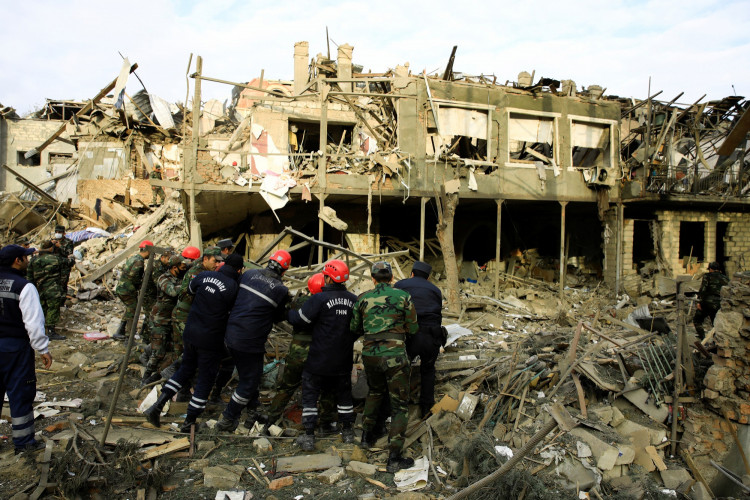After Ukraine and Russia traded accusations for new shelling around the facility, the mayor of the city where it is located told AFP on Sunday (Aug 14) that the potential of disaster at Europe's largest nuclear reactor is "increasing every day."
Since March, Russian forces have been occupying the Zaporizhzhia factory in southeast Ukraine, and Kyiv has charged Moscow with stationing hundreds of soldiers there and storing weapons. The facility has been attacked numerous times over the past week, raising the possibility of a nuclear disaster.
"What is happening there is outright nuclear terrorism, and it can end unpredictably at any moment," Dmytro Orlov, the mayor of Energodar city where the plant is based, said. He spoke to AFP over the phone from the Ukrainian-controlled city of Zaporizhzhia and said, "The risks are increasing every day."
Volodymyr Zelenskyy, the president of Ukraine, has previously accused Russia of using its nuclear project as "blackmail" and to "intimidate people in an extremely cynical way." Additionally, he said that Russian forces were "hiding" behind the plant to stage bombings of the towns of Nikopol and Marganets, which are under the control of Ukraine.
However, pro-Moscow authorities in Zaporizhzhia's seized regions attributed the shelling to Ukrainian forces. Vladimir Rogov, a representative of the administration set up in Moscow, said that missiles fell "in the areas located on the banks of the Dnipro river and in the plant" without mentioning any injuries or property damage.
As a result of numerous rounds of shelling on the plant this month, Kyiv and Moscow have traded accusations as the strikes have stoked fears of a nuclear meltdown.
Viktor Shabanin, a resident of the village of Vyshchetarasivka on the Dnipro's opposite bank from the plant, claimed that the most recent events had caused locals to feel "nervous." "Often the wind blows in our direction. So the radiation will go immediately to us, and the radiation will go into the water," the 57-year-old said.
On Sunday, air raid sirens and distant strikes were heard by AFP correspondents on the ground, but no new fighting was seen close to the facility. On Thursday, the UN Security Council convened an emergency session to discuss the situation and issued a warning that a "grave" crisis was developing in Zaporizhzhia.
The worry over Zaporizhzhia has brought up unpleasant memories of the 1986 Chernobyl tragedy, which rocked Ukraine while it was still a part of the Soviet Union and sent radioactive dust and ash over Europe.





